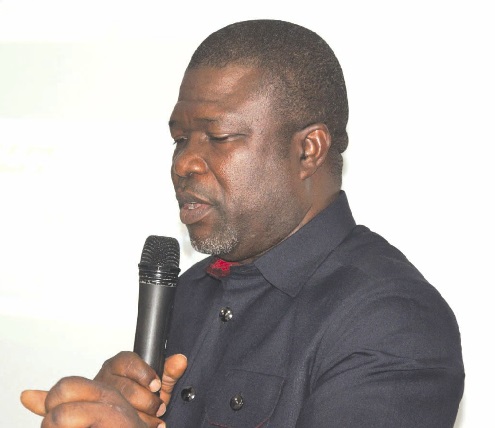The 2025 General Meeting of the Society of Medical Laboratory Managers Ghana has ended with a call for the inclusion of laboratory professionals in the core decision-making processes in healthcare institutions.
“The restructuring of our healthcare system demands a more inclusive, multidisciplinary approach to management, placing laboratory managers at the table where policies are shaped, budgets discussed and systems are designed,” said the Volta Regional Minister, James Gunu.
Mr Gunu, who opened the two-day meeting in Ho, said laboratory managers were positioned to identify inefficiencies in diagnostics services and to recommend suitable solutions for optimising test utilisation, equipment procurement and workforce deployment.
Further, he said they were at the forefront of laboratory innovations, from point-of-care testing to molecular diagnostics. That made their input crucial in managing and integrating those technologies into national health priorities.
Commitment
Mr Gunu gave an assurance that the government was committed to strengthening the role of health professionals in governance and system reform, adding that the nation would benefit immensely from a restructured health system that leveraged the full competencies of its workforce, including laboratory managers.
![]()
The laboratory managers at the meeting
The regional minister, therefore, urged the Society of Medical Laboratory Managers Ghana to continue building its members' capacity, not only in laboratory science, but also in leadership, policy and strategic planning.
“Engage hospital administration, regional health directorates and policy makers to be visible and vocal at the highest levels of health governance,” he added.
Mr Gunu appealed to the Ministry of Health and other stakeholders to create inclusive, evidence-based and patient-centred systems, where every professional’s voice was valued and every unit worked in synergy.
About 200 laboratory managers in the country attended the meeting, which was on the theme: Medical Laboratory Managers’ Involvement in Core Management – A Necessity in Restructuring Healthcare Delivery in Ghana.
Representation
The Dean of the School of Allied Health Services of the University of Health and Allied Sciences (UHAS), Professor Samuel Essien-Baidoo, in a keynote address, said medical laboratory practice in Ghana had not only advanced from routine urine examinations into in-depth molecular analysis of various human body specimens, but had also become a fulcrum of clinical decision-making.
However, he said the representation of laboratory managers in healthcare management systems' leadership and governance structures remained inadequate.
For instance, he said, while the regulatory framework governing the management of teaching hospitals and clinics acknowledged the incorporation of the Laboratory Clinical Unit, that legal position had not been sufficiently implemented at many practising sites.
“The challenges created by the non-recognition and integration of the medical laboratory manager in hospital management compromise our quest for quality healthcare management practices and service delivery,” he pointed out.
Professor Samuel Essien-Baidoo clarified that healthcare transformation in Ghana would be incomplete without laboratory managers' full, informed and strategic involvement.
“Whether in supporting the 24-hour health economy, leading primary healthcare diagnostics or driving evidence-based policy, our relevance is unquestionable,” he maintained.

